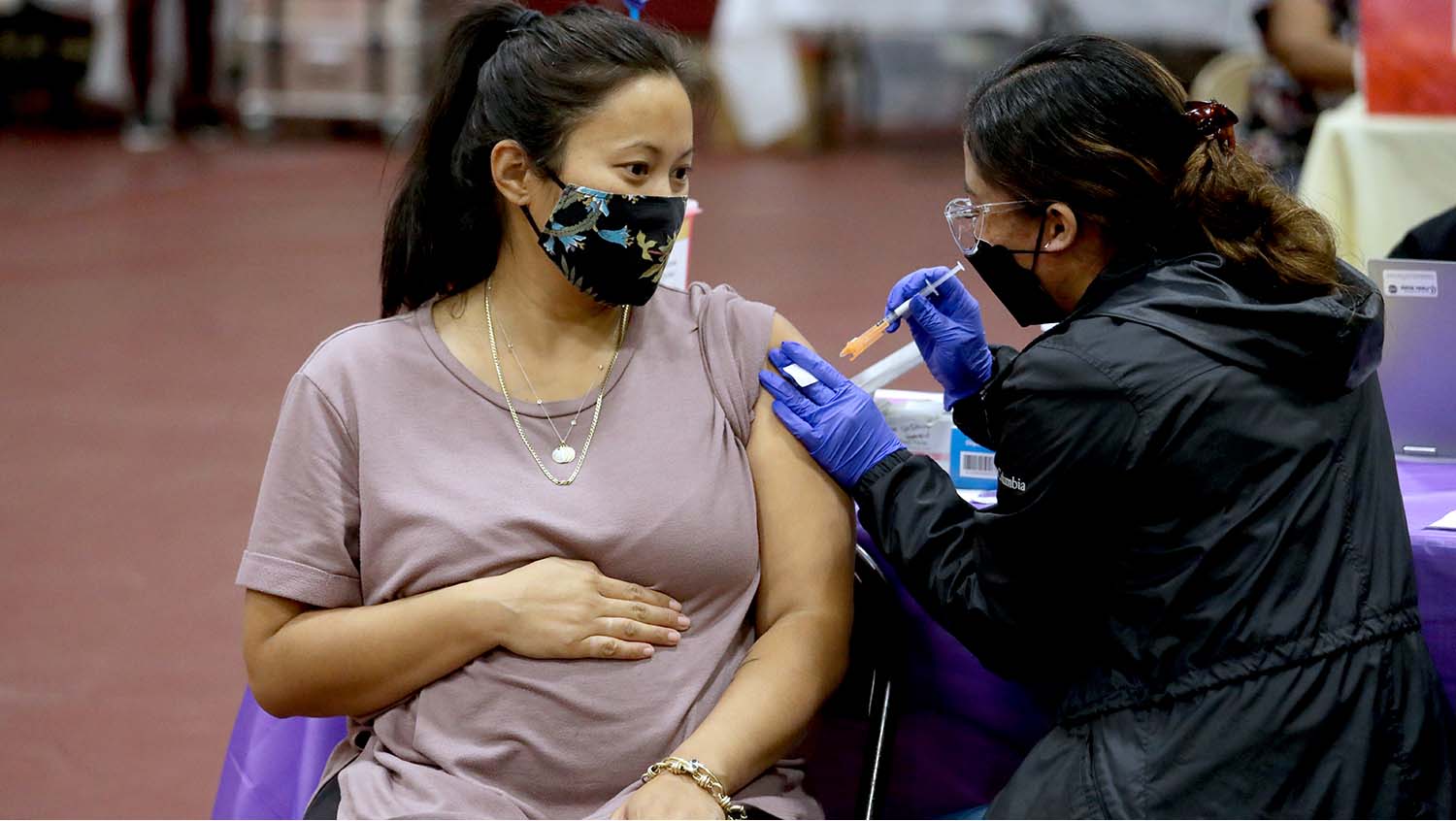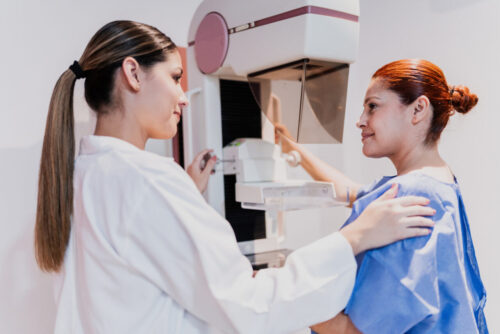A New Study Pinpoints Motivating Factors for Pregnant Women to Get Vaccines
December 22, 2021

Gary Coronado, Getty Images
Because of their high risk of hospitalization and pregnancy complications, pregnant women need tailored vaccine conversations for even common immunizations.
Consider that 30-year-old pregnant woman has a heightened risk of hospitalization from the flu, a comparable risk to a non-pregnant 65-year-old. Then, add to that heightened risk that the flu can also lead to pregnancy complications.
Meanwhile, between 10,000 and 50,000 cases of whooping cough occur in the U.S. each year, and infants younger than 6 months have a 50% chance of needing to be hospitalized if they get it.
For both of these infections, vaccines for pregnant women can help. The influenza vaccine decreases the risk of getting the flu and decreases the risk of being hospitalized if you do get the flu. Whooping cough vaccination during pregnancy allows protective antibodies to pass to the baby, protecting the baby until they are old enough to be vaccinated.
Because pregnant women and newborn infants are at increased risk for severe disease from influenza and whooping cough, improving maternal vaccination is a high priority for keeping mothers and babies safe.
Unfortunately, however, only about half of pregnant individuals receive these vaccines. Rates are even lower among pregnant women of color.
Vaccine hesitancy is considered one of the top 10 threats to public health by the World Health Organization. Because pregnant women and newborn infants are at increased risk for severe disease from influenza and whooping cough, improving maternal vaccination is a high priority for keeping mothers and babies safe.
To best tailor information and decrease vaccine hesitancy, researchers from Boston University School of Medicine (BUSM) asked pregnant women what information they found most important when deciding whether to accept recommended flu and whooping cough vaccines. The researchers’ findings appear online in the journal Women’s Health Issues.
Studying pregnant women’s motivations to get flu and whooping cough vaccines
The BUSM researchers interviewed 28 pregnant women ranging in age from 18 to 40 years old. A little more than half of participants identified as non-Hispanic Black or African American, 35% as Hispanic or Latinx, and 4% as Asian. Nearly two-thirds were insured through Medicaid.
Most of the participants felt that vaccines were beneficial and had previously received routine vaccines. Most heard about vaccinations from multiple sources, but they trusted their healthcare providers most as a source of vaccine information. When it came to those conversations with their healthcare providers, overall, the women named two of their most significant considerations for getting the vaccines.
“Participants felt that the most important messages to encourage maternal vaccination were that maternal vaccination protects the baby after birth, and maternal vaccination is safe for both mother and baby,” explains corresponding author Rebecca Perkins, MD, associate professor of Obstetrics and Gynecology at BUSM and a gynecologist at Boston Medical Center.
While, overall, the women felt vaccine safety and protection of the infant were the most important factors, they also identified messaging that was less likely to encourage them to obtain vaccines.
“They also found messages about severe disease among pregnant individuals to be frightening and less motivating than information about safety and protecting their babies,” Perkins says.
Unfortunately, according to the researchers, many vaccine discussions and public campaigns focus on this less motivating type of messaging, that severe diseases can occur if one does not accept vaccines.
“Positive messaging around safety and protection were more motivating than fear-based tactics,” says Perkins. “This has relevance for vaccine information both at the level of one-on-one discussions as well as public health campaigns.”


